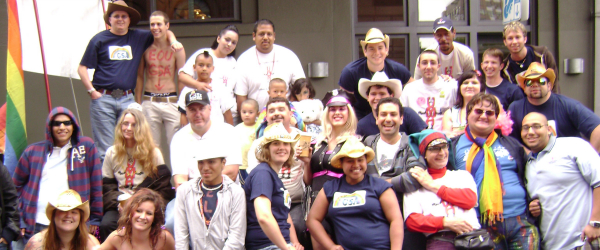Grantee: Umatilla Morrow Alternatives
When Frank Roa was in high school in Irrigon, Oregon (pop. 1,702) and realized he was gay, he looked around for someone, something, to tell him he wasn’t the only one, that he wasn’t alone. He didn’t find much.
Now, Frank has founded and directs an organization so that LGBTQ youth in Eastern Oregon have someone to talk to, someone to reach out to. That group is Umatilla Morrow Alternatives, based in Hermiston.
“First and foremost, we stay visible,” explains Frank. “The Umatilla County Fair, Landing Day, the Pendleton Roundup. We table and talk to people about ending racial discrimination, ending homophobia. About creating a true culture of acceptance.”
Not that they are accepted everywhere. Although some local businesses and organizations welcome them, others would just as soon close their doors, even when UMA has useful information.
“There are some local providers who work with homeless youth and still won’t acknowledge that some of these youth are homeless because of homophobia,” says Frank, “That these youth have run away from home because of homophobia and that’s why they are homeless. But one agency leader, we just keep talking to her and she’s starting to invite us to be part of the work they’re doing. She cares about the youth and is willing to open her mind.”
And sometimes the answer is to look outside the community for support. This summer, UMA organized a road trip for about 30 local folks to go to LGBTQ Pride in Portland.
“We take as many people as we can to Pride in Portland,” says Frank. “It’s great to see what a welcoming community looks like, and to get to be outside this atmosphere. For some of the young people, they can see how different it can be.” Adding, “and the urban folks need to see us, to remember that we’re out here.”
As a small group, there are limits to what they can do, but they are determined and busy. In addition to running local LGBTQ support services, they’ve also worked with Latinos in neighboring Boardman who are fighting racial profiling by police, and UMA also provides direct services to homeless people and HIV+ and at-risk individuals. For a small, mostly volunteer organization, they are in contact with a surprising number of people over a wide geographic area. They connect with many people that would have just gone without back in the days when Frank lived there as a teenager.
Frank sums it up, “There are a lot of people who feel like they don’t have a voice out here. But if we don’t do something, things won’t change.”





